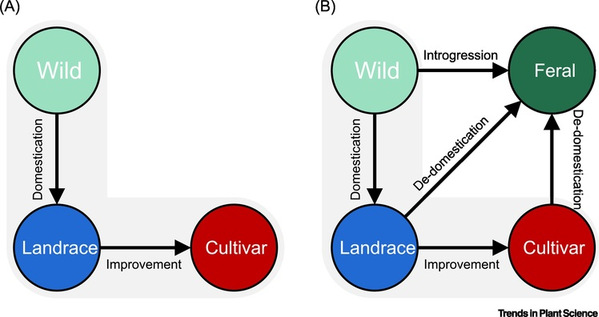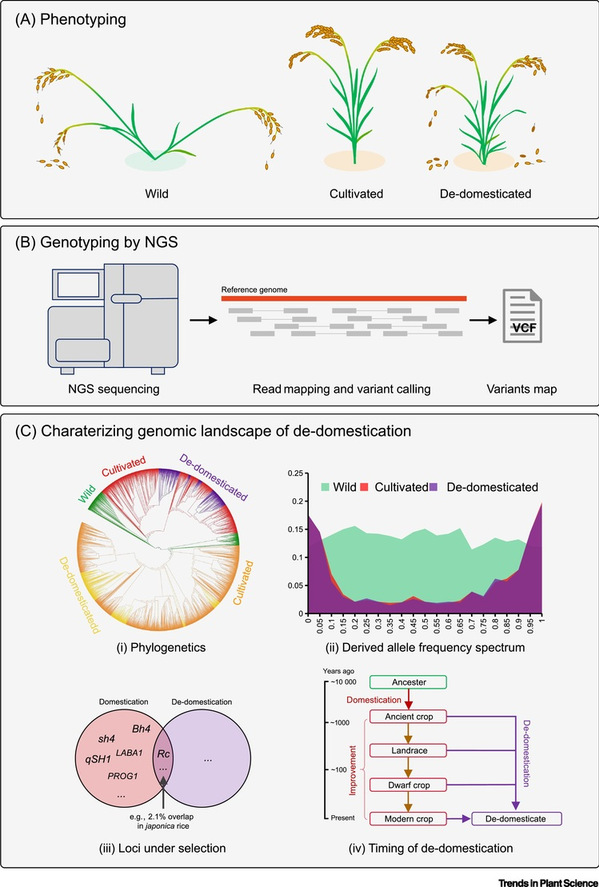ZJU scientists publish an opinion article about de-domestication
The research team led by Prof. FAN Longjiang from the Zhejiang University College of Agriculture and Biotechnology published an opinion article entitled “De-Domestication: An Extension of Crop Evolution” in the journal Trends in Plant Science on February 26, 2021. It summarizes the latest research into de-domestication and proposes that crop evolution should extend from three nodes (wild plantsàlandraceàmodern cultivars) to four nodes (wild plantsàlandraceàmodern cultivarsàferal plants). From this new point of view, de-domesticates form the fourth node and, therefore, extend crop evolutionary complexity.

Recent genomic studies in rice, barley, and wheat have confirmed de-domestication in crop domesticates, in which some of them have become malignant weeds in the field (e.g. weedy rice) and turned into the competitor of original crop varieties. Meanwhile, wild crops (including weeds and semi-wild crops) have evolved many new genetic mechanisms to adapt to the environment, which provide important genetic resources for crop breeding. This article appears in the special issue “Feeding the World: The Future of Plant Breeding” and provides a new perspective on future crop breeding.

De-domestication is an evolutionary process by which domesticated crops or livestock reacquire components of wild-like traits and escape from intensive management by humans to form independent reproducing populations. Currently, research into crop evolution is primarily concentrated on the origin of natural plants—the domestication and improvement of wild plants. In recent years, a series of genomic studies have confirmed the prevalent and consistent emergence of de-domestication of cultivars. This evolutionary phenomenon was first verified in rice. Studies of the genomes of weedy rice populations in China and the United States have confirmed that weedy rice is derived from cultivated rice and that cultivated rice has undergone multiple de-domestication events (Qiu et al., 2017; Li et al., 2017). Subsequently, studies in rice regions around the world have confirmed that rice de-domestication is a universal phenomenon and has occurred several times throughout history (Qiu et al., 2020). Genomic studies in barley and wheat populations have also confirmed that weedy barley and semi-wild wheat are also derived from the de-domestication of cultivated wheat crops (Zeng et al., 2018; Jiang et al., 2019; Guo et al., 2020). Evidence for the occurrence of de-domestication in these crops originates from two main sources: the phylogenetic relationship among wild, cultivated and wild ancestral species, and the distribution of allele frequencies associated with their domestication selection.